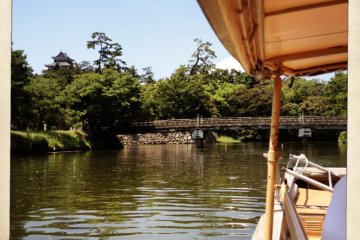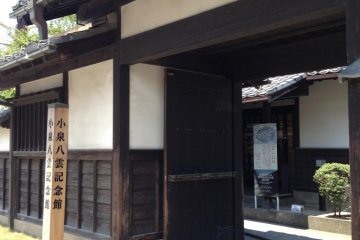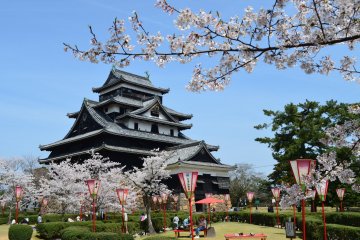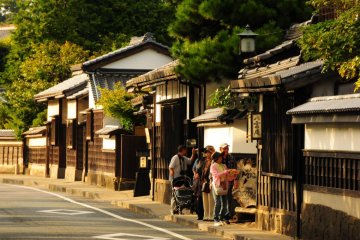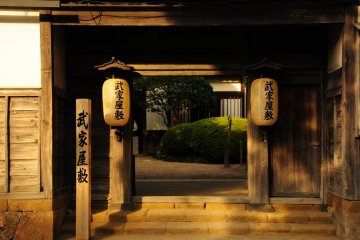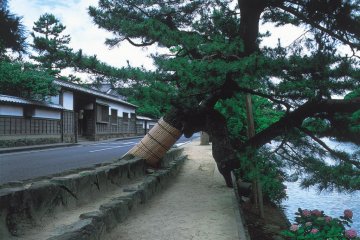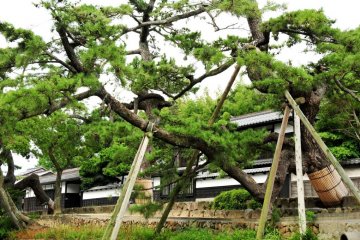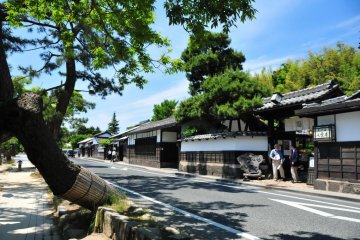Walking along Shiomi-nawate street, the traditionally walled houses create an Edo period atmosphere. A finely preserved samurai residence, open to public viewing for an admission fee, is located right at the half-way point of this street. It was built in approximately 1730, and has been lived in by a number of different families over the 300 year Edo period. Although there have been some alterations to the property, the entrance, drawing room and master’s living room are extremely well preserved in their original condition.
The entrance and guestroom are constructed with cedar pillars and straight grain planks, showing quite a luxurious front to the house. However, as you walk around the building to the rear, you can see that cedar bark panels were used for the house’s private quarters, making evident the distinction that the samurai class made between their private and public lives.
You can’t enter the building itself for preservation purposes, but the walls have been removed in part, so that you can see what life for a middle-class samurai in the Edo period was like. Items on display include kitchen utensils, a himekago (palanquin only used by upper-class women), a chest of swords, kimono, tools for dyeing teeth, an oblong chest with wheels, and other items of daily life.
There is a well beside the main building, and tea room within the grounds, and a display with an audio guide of a traditional annual drumming festival to the rear of the garden. In the garden, you can also see a monument honoring Kametaro Kunzan Takigawa, a famous Sinologist from the Meiji period, who grew up here.
There is a soba restaurant located beside the samurai residence, and other souvenir shops and cafes in the area also.
There is a 50% discount for international tourists who can show their passport at the ticket office.




